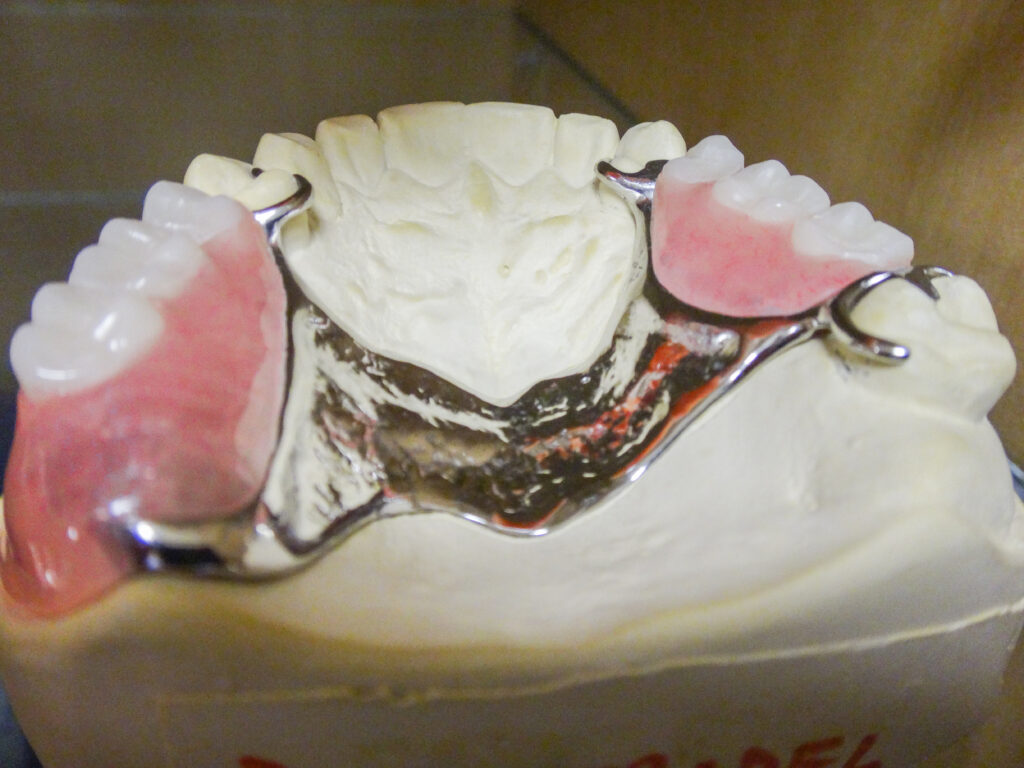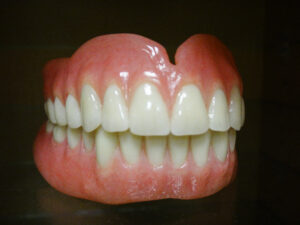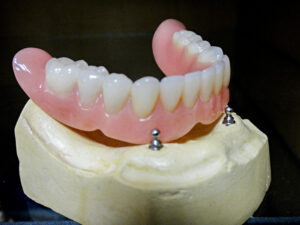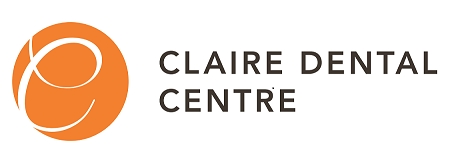Dental Laboratory Services
Dentures are artificial replacements for your natural teeth and gums. With our onsite denturist and dental technician, Alan Tong, we can provide one stop shopping for a variety of dental needs without the need for referrals or the hassle of wait times.
Our dental lab services include:
- Customized complete dentures, metal frame partial dentures and denture over implants
- Denture repairs and relines
- TMJ splints
- Bruxism night guards
- Personalized sport guards
- Custom-made retainers
- Removable orthodontic appliances
Dentures
We provide comprehensive denture services without the need for referrals or the hassle of wait times.
From getting new dentures to repairing your old ones, you can trust our onsite registered denturist, Alan Tong, who has over 30 years of experience to give you the best quality of service.
Learn more about dentures from the Canadian Dental Association’s website:
https://www.cda-adc.ca/en/oral_health/talk/procedures/bridges_dentures/dentures.asp
Four Main Types of Dentures
1. Fixed bridge

Fixed Bridge. These are a fixed dental prosthesis used to replace missing teeth by surgically cementing an artificial tooth, known as a crown, to the remaining natural teeth on each side.
More info: https://www.cda-adc.ca/en/oral_health/talk/procedures/bridges_dentures/bridges.asp
2. A partial denture (or removable partial denture).

Upper Cast Partial Denture. One or more false teeth are held in place by clasps that fit onto nearby healthy teeth. You can take the false teeth out yourself for cleaning and at night.
3. Complete dentures.

Complete Upper Lower Dentures. If you lose all of your teeth, these dentures can replace all your natural teeth.
4. Dental implants

Dental Implants. These are used to support false teeth or a fixed bridge. You must have healthy gums and bone (under your teeth) to support the implant. Your dentist (or oral surgeon) will put a small metal post into your jawbone. Over time, the post will bond with the bone around it. The post (or implant) will act like an anchor to hold one or more false teeth in place.
More info: https://www.cda-adc.ca/en/oral_health/talk/procedures/dental_implants/
Caring for your Dentures
You need to care for complete and partial dentures as carefully as you would look after natural teeth. Clean them every day. Plaque and tartar can build up on false teeth, just like they do on natural teeth.
Take them out every night. Brush your teeth and gums carefully, using a soft toothbrush. Be sure to clean and massage your gums. If your toothbrush hurts you, run it under warm water to make it softer OR try using a finger wrapped in a clean, damp cloth.
Soak them overnight. They can be soaked in a special cleaner for false teeth (denture cleanser), in warm water or in a mix of warm water and vinegar (half and half). If your denture has metal clasps, use warm water only for soaking. Soaking will loosen plaque and tartar. They will then come off more easily when you brush.
Caring for your Implants
Since the implant sticks to bone, it can be treated more like a natural tooth. But it is NOT as strong as a natural tooth. You must brush and floss the implant very carefully. Be gentle, but make sure you brush all sides of the implant. At least once a day, floss very carefully. You will need to be gentle with the floss where the implant meets the gum.
Important
People who have complete or partial dentures can also get gum disease around any natural teeth that are left. If you have gum disease:
– Your false teeth will not fit well over gums that are sore, swollen or bleeding.
– Your partial dentures (or removeable dentures) will not be held firmly in place if your natural teeth and gums are not strong.
Be sure to see your dentist regularly for professional cleaning and dental exams, so that he or she can detect any early signs of gum disease, and provide appropriate treatment.
Links
Preventive CareGeneral & Cosmetic DentistryOrthodontic ServicesClaire Dental Kids
